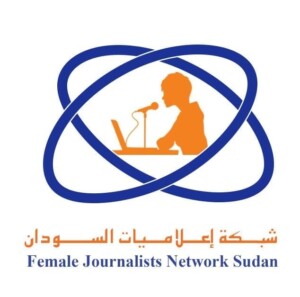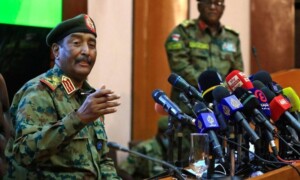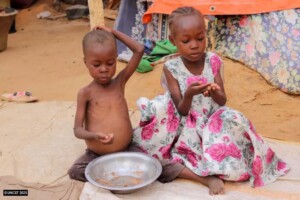IMF: ‘Economic conditions in Sudan remain challenging’
Economic conditions in Sudan remain challenging in the face of persistent fiscal deficits, high inflation, and economic sanctions, according to a team from the International Monetary Fund (IMF) led by Daniel Kanda visited Khartoum from September 13–September 26.
‘Economic conditions in Sudan remain challenging’: IMF
Economic conditions in Sudan remain challenging in the face of persistent fiscal deficits, high inflation, and economic sanctions, according to a team from the International Monetary Fund (IMF) led by Daniel Kanda visited Khartoum from September 13–September 26.
A media statement issued on Friday explains that Kanda’s team held discussions on the 2016 Article IV Consultation with Sudan. They observe in their preliminary findings* that the economic outlook in Sudan hinges on implementing bold and broad-based reforms to stabilise the economy and strengthen growth. They predict that the economic growth rate in Sudan will drop to 3.2 per cent in 2017 and pointed out that domestic demand was negatively affected by the lift of fuel subsidies at the end of last year.
They recommend measures for the expansion of social safety nets to support the most vulnerable and reforms to improve the business environment to engender strong, broad-based growth are critical.
At the conclusion of the visit, Kanda issued the following statement:
“Economic conditions in Sudan remain challenging six years after South Sudan separated, with the bulk of oil production and exports remaining in its territory. Since then, the authorities have embarked on reforms to help stabilise the economy and re-establish growth, including by allowing for greater exchange rate flexibility and reducing energy subsidies. While these reforms are important steps in the right direction, more needs to be done to turn the tide toward sustained macroeconomic stability and broad-based growth. A difficult external environment, including limited access to external financing, trade and financial sanctions, and withdrawal of correspondent bank relations has continued to constrain the economy. Thus, unsustainable fiscal deficits persist, inflation is high, and economic growth remains below potential.
“In 2016, economic activity grew at a modest rate of 3.5 per cent while inflation increased to 17.8 per cent. The fiscal deficit was stable at 1.6 per cent of GDP despite shortfalls in oil related revenues, and the external trade deficit moderated owing largely to the depreciation of the real exchange rate. In 2017, weaker domestic demand—partly due to a reduction in energy subsidies by the government in late 2016—is expected limit growth to 3.2 per cent. The impact of higher energy prices and rapid monetary expansion to help finance large remaining subsidies pushed inflation to 34 per cent in July. The fiscal deficit is expected to widen to two per cent of GDP. While the external current deficit is moderating due to the impact of higher energy prices and a depreciated real exchange rate, international reserves remain low.
“In 2016, economic activity grew at a modest rate of 3.5 per cent while inflation increased to 17.8 per cent. The fiscal deficit was stable at 1.6 per cent of GDP despite shortfalls in oil related revenues, and the external trade deficit moderated owing largely to the depreciation of the real exchange rate.” – Daniel Kanda
“The medium-term outlook hinges on implementing bold and broad-based reforms and improvements in the external environment. The team encouraged the authorities to accelerate reforms to restore macroeconomic stability and promote inclusive growth. Greater exchange rate flexibility should help reduce the external trade deficit, increase competitiveness, and encourage much needed foreign direct investment. Increasing fiscal revenue is needed to create space for investment in public infrastructure and human capital, while reducing the deficit to curtail its monetisation. Tighter monetary policy is needed to reduce inflation and would be greatly facilitated by phasing out costly and untargeted energy subsidies. The expansion of social safety nets to support the most vulnerable and reforms to improve the business environment to engender strong, broad-based growth are also critical. These reforms and positive decision on the permanent revocation of economic and financial sanctions would significantly improve Sudan’s economic prospects.
“Sudan is in debt distress and is eligible for debt relief under the Heavily Indebted Poor Countries (HIPC) Initiative. The large external debt and arrears and economic sanctions hinder access to external financing and weigh heavily on development. The team encouraged the authorities to continue to engage with international partners to secure comprehensive support for debt relief and the lifting of sanctions, which would pave the way for foreign investment and financing for growth and poverty reduction. The team welcomed Sudan’s efforts to strengthen cooperation with the IMF on policies and payments.
“The IMF staff team had constructive discussions with the Sudanese authorities on economic developments and policies over the past two weeks and wishes to thank the authorities for their hospitality and cooperation,” Kanda concludes.
Ministers
The official Sudan News Agency (SUNA) reports that the Minister of Finance and Economic Planning, Mohamed Al Rikabi, during the concluding meeting of the IMF mission, stressed Sudan’s cooperation with the fund to achieve the desired economic development, asserting his ministry readiness for more cooperation with IMF during the next phase.
He urged the IMF to extend the necessary support to Sudan to relief its external debts which constrain influx of new loans from the international financing institutions, calling for supporting the state’s efforts to increase revenues and social support for the targeted groups.
The State Minister at the Ministry of Finance Abdulrahman Dirar stressed continuity of the reform efforts aiming at development of economic performance in implementation of the state reform programs.
He pointed out that the reform resulted in good reports of economic performance gained recognition of the external financing institutions, emphasizing importance of the international community and the IMF assistance to support Sudan’s plans for financing production and development finance.
Economist
Sudanese economic analyst Kamal Karrar attributes the drop in growth rates in Sudan to the negative economic and financial policies pursued by the government which do not support production, cause inflation, and increase production inputs that increase the burden on producers.
In an interview with Radio Dabanga, Karrar said that the growth rate drop is much more than the figures reported by the IMF, referring to the collapse of productive sectors.
“ The guidelines for the 2018 budget approved by the government confirm the further increase in the prices of goods which increase the burden on the public.” – Kamal Karrar
He said that the guidelines for the 2018 budget approved by the government confirmed the further increase in the prices of goods which increase the burden on the public.
Business Owners Union
At a workshop on the impact of lifting economic sanctions on Sudan held in Khartoum on Wednesday, the Business Owners Union policy secretary, Samir Gasem, demanded the removal of corruption, the denunciation of the corrupt, the removal of government slack and the liquidation or selling of government companies.
He pointed to the classification of Sudan among the least developed countries according to Transparency International for its reliance on taxes and customs in revenues.
Finance Minister, Mohamed El Rikabi, acknowledged that the lifting of US sanctions on Sudan would not affect the people’s livelihood quickly.
He stressed that such a breakthrough requires the government to do a lot of work to restore Sudan to dealing with the international community and market.
*The IMF communications department notes: End-of-Mission press releases include statements of IMF staff teams that convey preliminary findings after a visit to a country. The views expressed in this statement are those of the IMF staff and do not necessarily represent the views of the IMF’s Executive Board. Based on the preliminary findings of this mission, staff will prepare a report that, subject to management approval, will be presented to the IMF’s Executive Board for discussion and decision.











 and then
and then